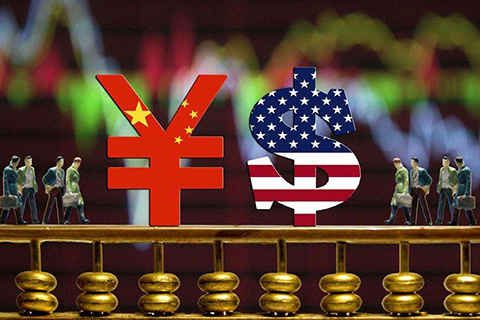Did not receive verification mail? Please confirm whether the mailbox is correct or not Re send mail

Vapor
- 2020-03-12 10:42:38
How the Trade War is Fostering IP Monetization in China

Now the world has seen it clearly: this US-China conflict will last for decades and will re-shape a significant portion of the global social and economic order. No one can afford to wait and see. After dramatic soaring up and free-fall roller coaster style developments, US and China reached a first stage settlement in January 2020. In the foreseeable future, numerous rounds of negotiations will continue along with the growth of China’s economic power.
Undoubtedly, the
US-China trade conflict is now a driving force that could explain and
help to predict the development of innovation regime and regulatory
framework concerning IP monetization in China.
Our observation is focused on how this driving force is shaping an environment beneficial to IP monetization.
First,
the awareness level of IP protection among Chinese entrepreneurs has
now reached record high. The news about the trade war and changes of
business environment concerning tariff and embargo has made headlines
frequently. The business community recognizes US’s demand in IP
protection is a key component of this war, and thus it is ready to give
more and deep thoughts on the value of IP.
Secondly,
businesses now must move upstream in the value chain. The trade war has
broken the current global collaborative models in many aspects and
forced numerous OEM/ODM companies in China to upgrade their operations
with independent innovation — or otherwise, they will perish. When they
had choice, opportunism dragged the change. When other options are no
longer available, innovation becomes a must do. In facing this new
reality, Chinese businesses are now projecting their new position in the
value chain. This behavior change is expected to increase the volume
of quality IPs, which are the fuel for IP monetization deals.
Third,
the regulatory regime is responding to the ongoing US-China negotiation
pressure with more concrete rules to punish willful IP violations. For
example, according to a new regulation jointly promulgated by 38
Chinese authorities in 2018, individuals who repeatedly infringe others’
IPs or refuse to comply with IP protection judgments will be deprived
of certain privileges, making them feel very inconvenient.
Under
this regulation, at a business level a violator will be disqualified
for certain social welfare subsidies or participation in governmental
procurement. At a personal level, violators will be excluded from public
transportation, such as trains or planes. The violators cannot no
longer hide behind their corporate shields if they infringe other’s IPs.
As a result, business decision makers are becoming more serious in
respecting the value of their own or others’ IPs.
Finally and
more generally, intellectuals are forming a consensus that, at least in
the IP areas, the trade war may be considered as a leverage to improve
and strengthen China’s innovation regime. Any settlement agreements
with US does not necessarily contradict with China’s long-term
interests. It may just speed up the transformation along a track that
China has already paved. At top level policy makers, the merits of IP
protection to economic growth is well recognized. The demands from the
US, while being an unpleasant pressure, also appear to push for a change
in the same direction.
All these developments are creating an
environment more friendly to IP monetization. Any financial deal trying
to exploit the value of IPs would prefer the underlying rights to be
more stable, enforceable with more transparency, and with better quality
and a larger pooling. The requirements and the dispute resolution
mechanism set forth under the US-China settlement agreement signed in
January 2020, and potential further developments in the coming years,
are ironing many wrinkles otherwise hard to remove before and giving
more greenlights to IP monetization deals.
Source:iprdaily.com
Author:Jili Chung
Editor:Vapor
- I also said the two sentence
- Also you can enter 140words
 Sony Music Slams Cox Communications' Challenge to $1B Piracy Verdict
Sony Music Slams Cox Communications' Challenge to $1B Piracy Verdict![Intellectual Property Office of Singapore Case Summary: Combe International Ltd v Dr. August Wolff GmbH & Co. KG Arzneimittel [2020] SGIPOS 3](/img/face_img/202003/15831386749814.jpg) Intellectual Property Office of Singapore Case Summary: Combe International Ltd v Dr. August Wolff GmbH & Co. KG Arzneimittel [2020] SGIPOS 3
Intellectual Property Office of Singapore Case Summary: Combe International Ltd v Dr. August Wolff GmbH & Co. KG Arzneimittel [2020] SGIPOS 3 Interview:China calls for fair election of WIPO director general
Interview:China calls for fair election of WIPO director general 5th China Pharma IP Summit 2020 will be held on Oct 14th to 17th
5th China Pharma IP Summit 2020 will be held on Oct 14th to 17th


